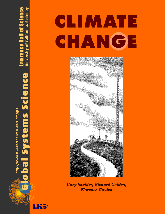CC10.4. Your Vote on Energy Measures

{ Climate Change Contents } { All GSS Books }
Most laws are made to promote the well-being of the country’s citizens, but in practice, it is not that simple. Legislators and voters must ask, “Whose well-being are we looking out for, and what is the best way to accomplish our goals?” There are often conflicting viewpoints. One course of action may benefit some groups, but harm others. Another may be costly in the short term, but save money in the long term.
Select two of the following legislative proposals to write about—one you would support, and one you would not. Use the information in this book, other sources, and your own opinions to justify your point of view. Write an outline, discuss your ideas with other students, and then write an essay on the two proposals. Identify the goal of each proposal, who benefits and who pays the costs associated with the proposal. Try to convince your classmates that your decision on each proposal is right and fair.
Proposal 1: Conservation Tax Credit
This measure offers a tax credit for purchases of energy-efficient products. Individuals will be reimbursed half of their expenses for home insulation, energy-efficient lighting, and refrigerators. Businesses will be reimbursed half of their expenses for improvements that reduce their overall energy use. Money will come from the general tax fund.
Proposal 2: Energy Sales Tax
A sales tax of 100% will be added to the cost of all fossil fuels. Energy prices will double. All funds raised will be used to improve public health and the environment. Utilities will be allowed to raise rates to cover this cost.
Proposal 3: Incentives for Industry
Building contractors, factories, and private utility companies will not have to pay taxes on half of their profits from the sale of energy-efficient products such as solar house and water heating, solar and wind power systems, and vehicles that run on alcohol, hydrogen, or electricity.
Proposal 4: Encourage Recycling
Manufacturers of all products will be required to develop a system to recycle all wastes, including packaging materials of consumer goods. In order to be approved, proposals must be energy-efficient and environmentally safe.
Proposal 5: Require Energy Efficient Cars
All cars must inspected to see that they get at least 30 miles per gallon. Cars that do not comply will be kept off the road.
Proposal 6: Fee-Rebate Plan for New-Car Fuel Efficiency
Buyers of fuel-inefficient cars would pay a fee of $200 for each mile per gallon the vehicle gets less than 30 miles per gallon. Example: someone who buys a car that gets 29 miles per gallon would pay an extra $200. If the car gets 25 miles per gallon the person pays an extra $1,000. The money collected would be used as rebates to buyers of fuel-efficient cars at the rate of $200 for each mile per gallon the vehicle gets greater than 30 mi per gallon.

